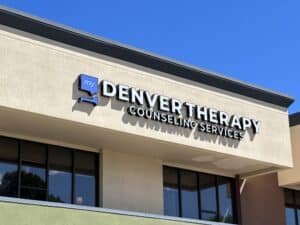How to find the most suitable therapist for you
When you’re searching for a therapist, it’s important to find someone who you feel comfortable with and who is well-suited to help you with your specific needs. It is in your best interest to also make sure your therapist is certified to assist your specific needs. To begin evaluating who is the most suitable therapist for you, it is good to first determine your own needs. Before you begin your search, take some time to think about what you’re looking for in a therapist, what you’re wanting to work on yourself, and what you think can help you reach some of those mental health goals. What issues are you struggling with, trauma, anxiety, or mental health issues? What type of therapy are you interested in, possibly in person or teletherapy, ketamine assisted therapy, EMDR or something else? Do you have any specific preferences, such as gender, age, cultural background, location, or specific training? These questions can help you start understanding what you truly want first.
Next, it’s always a good idea to get recommendations from friends, family members, or even your healthcare providers. If these aren’t options you have or feel comfortable with, you can also search online for therapists in your area and read reviews from other patients to help you gain insight into that business and the specific therapist that works for them. Along with this ask questions about their credentials. It’s always a wise choice to make sure that any of the therapists that you’re considering are licensed or certified in your state as some requirements change from state to state. You can check with your state’s licensing board to verify a therapist’s credentials before moving forward with your sessions.
You should also consider the therapy type you need. There are many different types of therapy, such as cognitive-behavioral therapy, psychoanalytic therapy, online therapy, group therapy and so on. Therefore, before you start, think about which type of therapy might be best suited to your needs and your end goal. For example, if you are experiencing trauma, you might want to consider EMDR therapy for trauma. However, if you are struggling more with depression it might be better to seek a therapist who can provide you with practical tools to help you find greater healing as well as someone who is qualified to notice possible chemical imbalances that could cause your depression.
You should also evaluate your experience with your therapist. Consider a therapist’s experience and expertise in dealing with the issues you’re struggling with as well as how you feel like you are progressing in your sessions. Again, to provide an example, if you are dealing with postpartum depression you should look for a therapist who has experiences treating postpartum depression and then after a few sessions evaluate how you feel like you are progressing as well.
Another practical tool to take advantage of, would be free consultations to get to know your therapist before choosing who you want to invest your time and money into. Take advantage of this opportunity to ask questions and get a sense of whether the therapist is a good fit for you as well as if they have the credentials you’re looking for. From here, trust your instincts on which therapist you should go with. Ultimately, the most important factor in finding the right therapist is trusting your instincts and on who can best assist you in finding better mental health. If you don’t feel comfortable with a particular therapist, don’t be afraid to keep looking until you find someone who is a good fit for you and your needs.
Here are a few practical tools to find a suitable therapist are:
- Psychology Today’s Therapist Finder tool: this tool allows you to search for therapists based on their location, specializations, and insurance accepted which can help you quickly narrow down the pool of amazing professionals to a smaller branch of people.
- Open Path Collective: Offers low-cost therapy options and allows you to search for therapists based on your location and financial situation, however if you find a therapist you really like out of your price ranger, ask questions and see if there is any way you can stay with the professional you feel most comfortable with.
- National Alliance on Mental Illness (NAMI): Provides a helpline and resources to help you find mental health services in your area but it can also be helpful to ask the people in your own life, who you know are seeing a therapist, who they are seeing and the pros and cons of their experience.
To conclude, finding the right therapist can take time and effort, but it’s worth it to find someone who can help you work through your issues and improve your mental health, so be patient throughout this process and know you will find the right match. Take your time and use some of the resources listed above to help you find the right therapist. Your journey to better yourself, your relationships, and your mental health is just getting started, so take the next steps forward to discovering what therapy can do for you.







